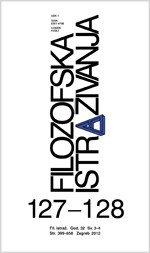Keynesov animal spirit. Filozofski aspekti učenja Johna Maynarda Keynesa o uzrocima ekonomskih kriza i opravdanju državne intervencije
Keynes’ Animal Spirit. Philosophical Aspects of the Theory of John Maynard Keynes on Causes of Economic Crises and the Justification of the State
Author(s): Aneli Dragojević MijatovićSubject(s): Philosophy
Published by: Hrvatsko Filozofsko Društvo
Keywords: John Maynard Keynes; David Hume; animal spirit; decision making; irrationality; global crisis; free market; state intervention
Summary/Abstract: In his book General Theory of Employment, Interest and Money (1936) English economist John Maynard Keynes underlines the importance of the psychological approach in economical decision making. He explains this factor relying on the ancient philosophical concept of the animal spirit. According to Keynes, animal spirit governs human behavior and attitudes. Such individual decisions may engender imbalances and crises which should be harmonized and stabilized by some external intermediary. Keynes claimed that the state may assume the role of such intermediary. The role of the state is to develop institutional framework which is capable to prevent or to correct some anomalies produced by the free market economy. In the paper I attempt to underline the certain similarity between Keynes’ animal spirit and Hume’s perception of passion as the motivator of human action.
Journal: Filozofska istraživanja
- Issue Year: 32/2012
- Issue No: 03-04
- Page Range: 557-567
- Page Count: 11
- Language: Croatian

